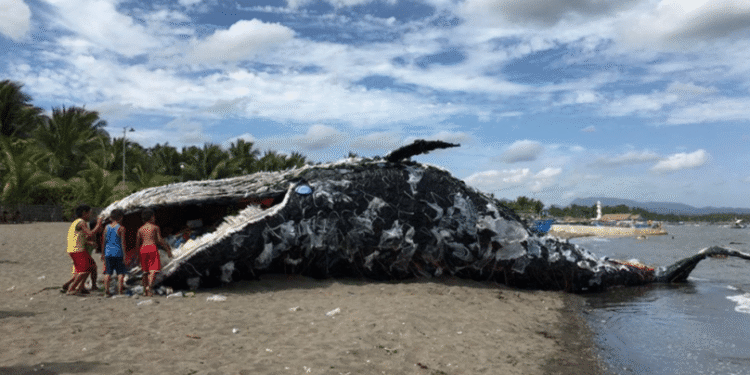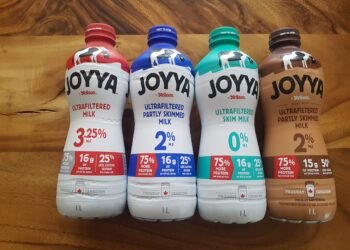What if the very waste choking our oceans could become the solution to saving them?
This provocative question lies at the heart of Plastic Whale’s innovative approach. Founded in 2011, this pioneering social enterprise has transformed environmental challenges into opportunities for change.
Their mission is clear: achieve plastic-free waters worldwide. They’ve created a unique business model that turns collected waste into valuable products.
Through three core pillars – collection, creation, and education – they engage communities and businesses. This comprehensive strategy addresses pollution while creating economic value.
Their rapid growth demonstrates how environmental responsibility and business success can work together. They’ve become the first professional plastic fishing company globally.
Key Takeaways
- Plastic Whale transforms ocean waste into economic opportunities
- Founded in 2011 as the world’s first professional plastic fishing company
- Operates through three main pillars: collection, creation, and education
- Creates measurable environmental impact through community engagement
- Demonstrates how business models can address global water pollution
- Shows rapid growth from novel idea to sustainable enterprise
The Birth of Plastic Whale: From Vision to Movement
Every great movement begins with a single spark of inspiration. For Marius Smit, that moment came during his travels fifteen years ago.
He encountered a beach transformed by a tropical storm. The shoreline was completely covered with discarded materials.
This powerful experience revealed the staggering scale of our global pollution problem. It became the catalyst for an extraordinary journey.
Marius Smit’s Inspirational Moment
Smit’s encounter with the polluted shoreline marked a turning point. He saw firsthand how discarded items accumulate in natural environments.
This visual shock stayed with him long after his travels ended. It fueled his determination to find solutions.
Through research, he discovered an innovative possibility. PET containers could be transformed into foam plates suitable for boat construction.
This revelation connected environmental cleanup with practical creation. It formed the foundation of his future work.
The “Man on the Moon” Challenge
Inspired by Kennedy’s historic speech, Smit adopted a similar ambitious mindset. He set himself an extraordinary task.
His challenge was building a vessel from collected materials. This ambitious goal would inspire collective action.
He strategically used social media to launch his initiative. The concept quickly captured public imagination.
The approach demonstrated how spectacular goals can mobilize communities. It showed the power of visionary thinking.
Building the First Plastic Fishing Boat
The first cleanup event in Amsterdam’s waterways brought together 450 participants. People enthusiastically removed discarded items from the canals.
This initial success proved the concept’s appeal. Community engagement exceeded all expectations.
By 2014, the team achieved their milestone. They constructed their first vessel entirely from reclaimed materials.
This achievement marked a significant turning point. It validated their innovative approach to environmental challenges.
The project evolved into a sustainable business model. Corporate partnerships and vessel sponsorships provided financial support.
Participation grew dramatically over time. Eventually, over 13,000 individuals joined the cleanup activities.
This created what Smit calls an “army of doers.” It’s a movement of people taking concrete action against pollution.
The founding story demonstrates how individual initiative can address global environmental issues. It shows that determined action creates real change.
Plastic Whale’s Innovative Three-Pillar Approach
Effective environmental action combines immediate remediation with long-term prevention through education and innovation. This organization’s comprehensive strategy addresses pollution at multiple levels simultaneously.
Their approach creates a sustainable cycle of positive change. Each pillar reinforces the others for maximum effectiveness.
We Collect: Engaging Communities in Cleanup
Community participation drives the collection process. Organized events bring people together to remove debris from waterways.
These gatherings serve dual purposes. They directly clean polluted areas while raising awareness about pollution pathways.
Corporate teams and individuals join these efforts regularly. This creates tangible results while building environmental consciousness.
The plastic fishing concept makes cleanup accessible and engaging for everyone. Participants see immediate results from their efforts.
We Create: Transforming Waste into Value
Collected materials undergo remarkable transformations. They become valuable products instead of ending up in landfills.
The organization partners with design experts for this process. Vepa Project Furniture and LAMA Concept help create beautiful, functional items.
Their Circular Furniture line demonstrates this principle perfectly. These products generate proceeds that support foundation projects.
This economic model proves environmental responsibility can create financial value. Waste becomes resource through innovative thinking.
We Educate: Raising Awareness and Changing Behavior
The Plastic Whale Foundation organizes free awareness events for the public. These gatherings teach about pollution issues and solutions.
School programs represent another crucial educational component. Children learn about environmental challenges from an early age.
These initiatives foster lasting behavioral changes. Participants become more conscious consumers and advocates.
Education creates the foundation for sustained environmental progress. Knowledge empowers people to make better choices daily.
Together, these three elements form a powerful strategy against pollution. They address immediate problems while building a cleaner future.
Measuring Impact and Overcoming Challenges
Success brings its own set of challenges, especially when scaling a mission-driven enterprise. The organization’s rapid growth highlighted both its achievements and the obstacles to greater impact.
Measuring results became crucial for strategic planning. The team needed to balance local engagement with global expansion opportunities.
Quantifiable Results: From Amsterdam Canals to Global Waters
The numbers tell a compelling story of progress. More than 12,500 volunteers have participated in cleanup activities across Dutch waterways.
Their efforts removed 105,000 bottles and 2,062 bin bags of discarded materials from Amsterdam canals. This tangible impact demonstrates the power of community action.
Operational scale grew significantly with ten specialized vessels now operating in Amsterdam. The expansion to Rotterdam marked important domestic growth.
This expansion proved the model’s replicability within the Netherlands. Each new location adapted the approach to local conditions.
Strategic Partnership with Strategy& for Scalability
Rapid success created unexpected constraints. The availability of materials in Amsterdam waterways limited product creation scalability.
The organization partnered with consulting firm Strategy& to address these challenges. Experts Lars Langhout and Kelly van Heyningen helped formulate growth strategies.
They identified new business opportunities through careful analysis. The partnership focused on maximizing environmental impact while maintaining financial sustainability.
This collaboration resulted in three new product categories for both business and consumer markets. These innovations increased the economic value of collected materials.
Expanding Beyond Dutch Borders
The team faced a strategic dilemma: how to expand globally while maintaining local engagement. Dutch companies and individuals remained crucial supporters.
Their solution involved strategic international partnerships. The collaboration with SweepSmart in Bangalore, India, created local jobs while reducing landfill waste.
This approach allowed impact expansion without diverting focus from domestic operations. Each partnership followed careful evaluation of potential environmental benefits.
Purposeful cooperation with partners could increase global impact by 200 times current volumes. The strategy represents a data-driven approach to growth.
Every idea undergoes testing based on its potential to inspire people and maximize environmental results. The shift from local canals to worldwide waters maintains the core mission while expanding reach.
Conclusion: The Future of Plastic-Free Waters
Community-driven solutions continue to prove that collective action creates lasting environmental impact. This organization’s journey shows how innovative thinking transforms challenges into opportunities.
Their vision expands globally with partnerships aiming for 200 times current impact. The three-pillar approach of collection, creation, and education remains central to this mission.
Everyone can participate through fishing tours in Rotterdam. Multiple pickup locations along the Rotte river welcome groups of up to 11 people per boat.
Corporate and individual partnerships create both ecological and economic value from recovered materials. This model demonstrates sustainable solutions to water pollution.
Join this growing movement for cleaner waterways worldwide. Contact cleanups@plasticwhale.com or call 0207373049 to get involved. Visit www.plasticwhale.com to learn more about participation opportunities.
Together, we can create a future where waters remain free from pollution through engaged community action and innovative business approaches.
FAQ
What is the main goal of Plastic Whale?
The foundation works to clean waters worldwide by turning collected waste into valuable products and raising public awareness.
How did Plastic Whale get started?
It began when founder Marius Smit was inspired to tackle pollution, leading to the creation of the first boat made from Amsterdam Canal materials.
What activities can people join?
Anyone can participate in cleanup events, known as “plastic fishing,” on city waterways, helping remove debris while learning about sustainability.
What happens to the gathered materials?
Items are sorted and repurposed into new goods, like office furniture, promoting circular economy principles and reducing landfill use.
Does Plastic Whale operate outside the Netherlands?
Yes, efforts have expanded internationally, with projects and partnerships growing to address global water pollution issues.





